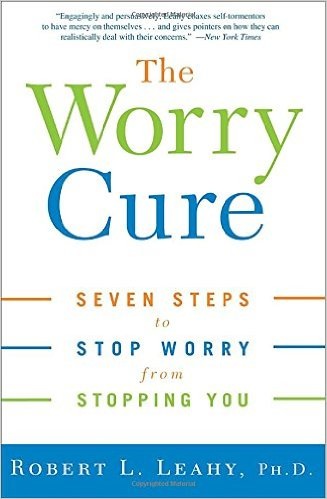This Is One of The Most Powerful Psychology Hacks Ever Invented, And It Only Takes a Few Minutes.1/26/2016
The Happy Talent's original purpose was to promote playfulness and leisure skill development, but I quickly realized that there are many other ways to improve your life. Hence These Specific Behaviors Will Make You More Charismatic - Starting RIGHT Now; The Best Productivity Hack in the WHOLE WORLD... Is This One; and Money DOES Buy Happiness - IF You Know How to Spend It.
But somehow, I have failed to discuss one of the best psychology hacks in the whole world -- until now.
Cognitive reframing has long been used in cognitive behavioral therapy (CBT) to help patients with identify -- and then dispute -- negative thoughts and thought patterns. Originally developed to combat depression, it quickly caught on among psychologists, and soon spread to more general uses.
Lachman et al. (1992) found that cognitive reframing improved poor memory. It has also been shown to reduce performance anxiety and help parents and children cope with disabilities. It reduces stress and anxiety... and even increases happiness and wellbeing. And, with a little effort, it can have a powerful affect on your life, too. Example 1: Road Rage As discussed in The Surprising Trait Carbs and Valium Have In Common, When you’re stressed, you go through the human stress response. The point of this is to mobilize energy and send it out to your muscles. During stress, the brain secretes hypothalamic hormone, which makes the adrenal gland secrete glucocorticoids (GCs).
In other words, stress can have a long, lingering effect. Even something as fleeting as being cut off by another driver on your way to work could be enough to derail your whole morning. Making matters worse is road rage, which feeds back into your fight-or-flight instincts and causes even more adrenaline and cortisol to be pumped into your system.
"What a jerk! Doesn't that guy realize what an idiot he is? He's going to kill someone!" you might scream to yourself. Or you may scream at directly at him, even though he can't hear you. You may lean mercilessly on your horn -- or even flip him the bird! Honestly, just imagining such a scenario is enough to make most peoples' blood pressure spike. Here's how to cognitively reframe this situation: Humanize the person who cut you off. Instead of assuming he is a jerk... assume he is in the car with his wife. She's gone into labor, and he is frantically trying to get to the hospital for his son to be born. Of course he cut you off -- can you really blame him? (That had an instant cooling effect on my boiling blood!)
Or, if that's too dramatic for you... pretend this guy just graduated from college. He's got massive student loan debt, and he is on his way to his first job interview in weeks. Traffic was worse than normal this morning, and the guy is starting to panic.
You'd panic, too! Having reframed this situation, you've reduced stress and anger response -- and you just showed up at the office feeling calmer, healthier and more relaxed. Example 2: Heartbreak We've all had our hearts broken. And it sucks. It sucks so much, some people don't even want to start a new relationship, because of how painful it was to end the last one. Or maybe someone you'd really connected with, whom you were really starting to like (or love!), suddenly broke up with you over text -- or even just ghosted. It hurts so much. You've tried reaching out enough times to feel like a stalker... but still nothing. All you want is an answer! Part of the anguish you're feeling may be due to uncertainty. Our bodies hate uncertainty! In fact, according to Robert Leahy, psychiatrist and author of The Worry Cure: Seven Steps to Stop Worry From Stopping You (in addition to several textbooks), research shows that sick people would rather receive a bad diagnosis than no diagnosis.
One way you can get through heartbreak is through reframing. Sit down and write a letter to your lost love. Say everything you wish you could say. Get everything off your chest. But don't send the letter. Then... write their reply to you. Accept the fact that the relationship is over. The point isn't that you have an imaginary reconciliation. The point is that you pretend, just for a moment, that you got some answers. You got some closure. Let him admit that he was a coward. Let her admit she is sorry, and that she wishes you the best. As you write, visualize yourself saying these things to your ex. Visualize them reading their letter to you. Really see it -- visuals activate our emotional processing centers. It sounds really weird... but this form of reframing will actually help. Here's why: Functional MRI (fMRI) studies show that our brains process understanding, then belief, then disbelief. In that order. (Probably because disbelief requires the most cognitive effort.) Even if the belief only lasts a moment, it still helps alleviate hurt and anxiety. It still helps resolve some of the uncertainty you've been feeling. Moreover, our brains are somewhat rubbish at distinguishing fantasy from reality. When you imagine a possibility or tell yourself a story, part of your brain stores that fantasy... as a memory. Which isn't to say you're going to mistakenly think your ex wrote you that gushing apology -- the conscious part of you will know the truth. But the part of you that lets hurt and worry creep in when you least expect it... That part will be at least partially comforted by the fantasy of closure. If you're still feeling stuck, sit down and write yourself another letter. From yourself. Rehash all the things about the person and relationship that made you unhappy. Write down all the reasons the relationship wouldn't have worked. All the things you would have eventually argued about. This should help you move on, for very similar reasons. Visualizing the problems in the relationship will help remind you that he wasn't prince charming. She wasn't the one who got away. It would have ended eventually -- better sooner than later, right?
I mean... you could have found out on your wedding day... and been left crying in the snow. All by yourself. Like me. Just kidding - I was totally just walking around in the show in a white dress and I sunk in.
Example 3: Bad Boss As I wrote in The Most Obnoxious Stereotype EVER About Women... Can Teach You a Lesson About Science, Business, and Life, sometimes we encounter a difficult problem over which we have little control. It's extremely frustrating, and it almost doesn't feel like looking for a solution makes any sense. It's not going to change anything. It's not going to give you more control. It feels like the only thing you can do about it... is vent.
You know what's one of the things we have least control over?
Our boss. Some people just have a bad boss. Or maybe they feel like their boss hates them, and they're not sure why. It sucks, it makes the whole rest of your life feel a little worse, and there's basically thing you can do about it. One way to feel better about a situation like this would be to visualize, or even write down, some of the reasons why your boss might be a bad boss. Reasons that aren't about you, but with him/her. For example:
Visualizing these scenarios helps humanize someone it's easy to demonize -- but you're walking a fine line, here. Part of the goal with this exercise is to to shift responsibility from yourself to another entity. On the other, you don't want to self-handicap or downplay your own agency and accountability. Your focus, then, should be more about eliminating uncertainty (Why doesn't this guy like me?! What did I do wrong?), which our brains are ill-equipped to handle, and which cause us more discomfort, anxiety and stress than simply receiving bad news. Accept the things you can't change. Take some comfort in your temporary break from uncertainty. Practice reframing, so fewer negative thoughts will creep in. And maybe, just maybe, you will have an epiphany about what's going wrong at work or how you could improve the situation. *** Life is hard for everyone, no matter how perfect they may seem on social media -- or even in person. Through cognitive reframing, you can keep your spirits high, your stress low, and your reality in check. To learn more about this, check out the amazing Amy Cuddy's Presence: Bringing Your Boldest Self to Your Biggest Challenges, which will teach you how to physically manifest your cognitive reframing, or Brene Brown's The Gifts of Imperfection: Let Go of Who You Thikn You're Supposed to Be and Embrace Who You Are, which will help you reconstruct who you think you "should" be while embracing and leveraging your imperfections.
0 Comments
Leave a Reply. |
About the Author

Eva is a content specialist with a passion for play, travel... and a little bit of girl power. Read more >
Want to support The Happy Talent? CLICK HERE!
Or Find me on Patreon!
What's Popular on The Happy Talent:
Trending in Dating and Relationships:
What's Popular in Science: Playfulness and Leisure Skills:
Popular in Psychology and Social Skills:
Categories
All
|





























 RSS Feed
RSS Feed